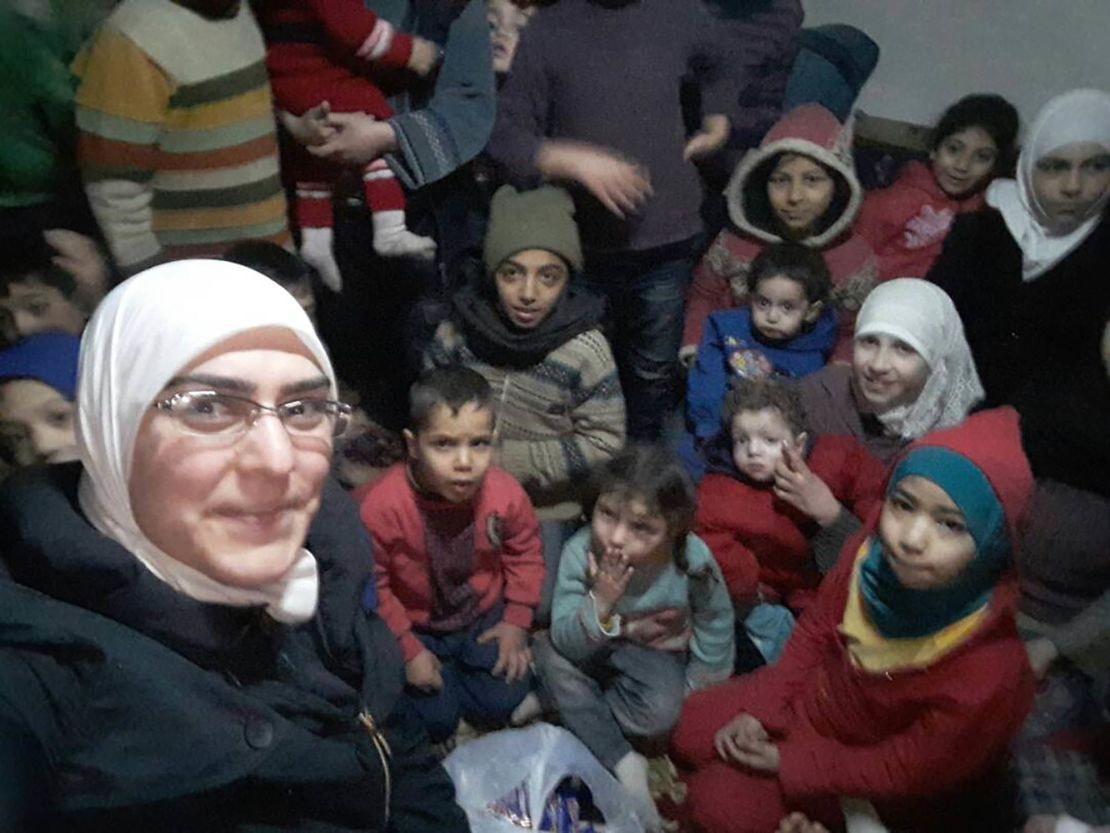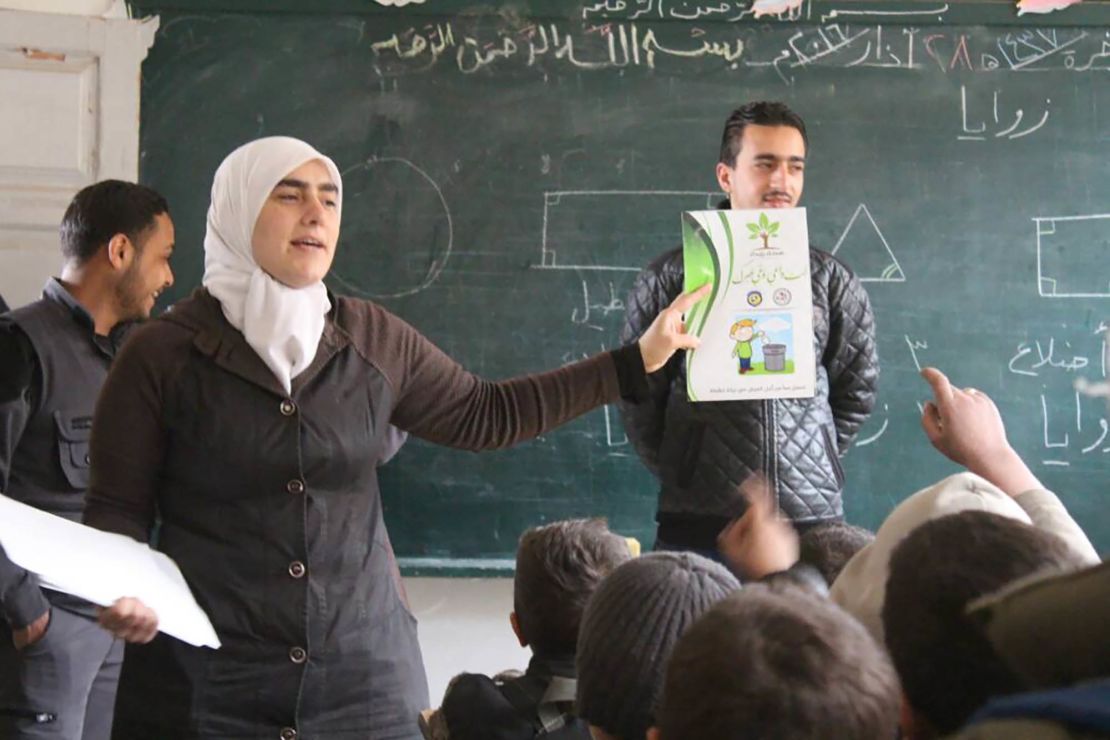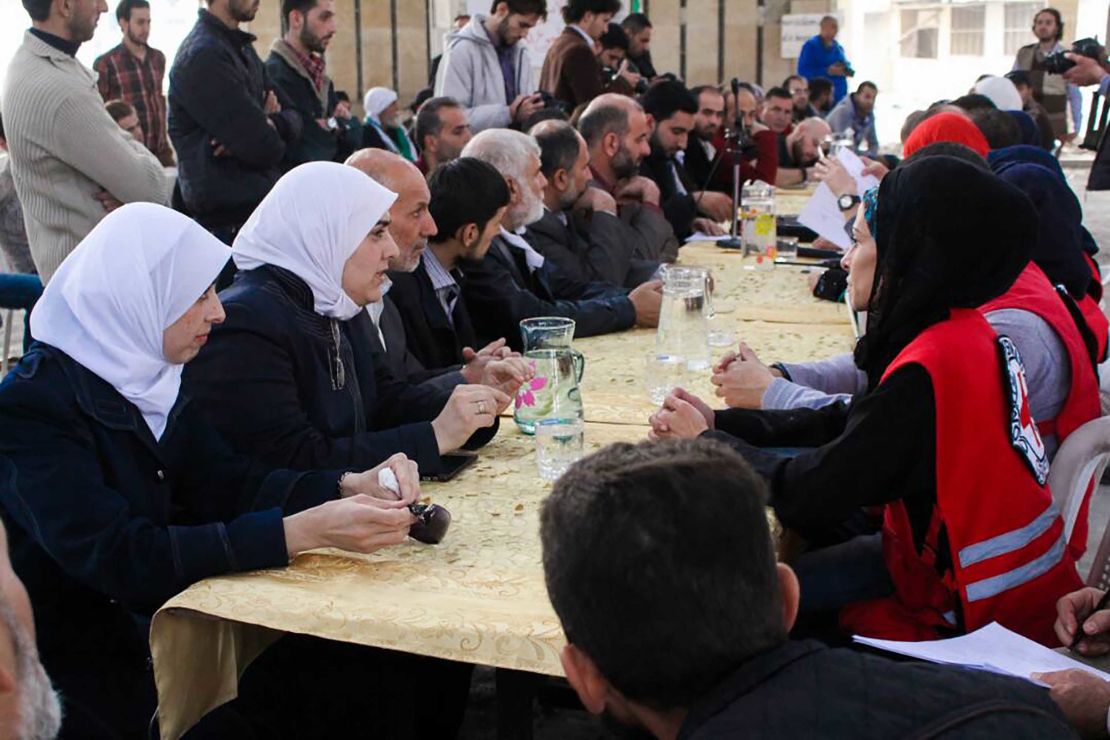Editor’s Note: Bayan Rehan is head of the Women’s Office at the Local Coordination Commitee in the Eastern Ghouta city of Douma. She also is an activist and has taken part in Syria’s uprising since its onset. The opinions in this article belong to the author.
Today was my first day in the basement. I ran down after missiles struck our house at night. In under two minutes, my family and I crossed 150 meters to the nearest makeshift shelter for women and children. We had no time to take any of our belongings with us. We just wanted to escape the hellfire raining on us.
This isn’t only my fate. Most of the residents of my town of Douma in Eastern Ghouta have gone underground. The basements offer some respite from a weeklong assault by the Syrian regime that has claimed over 500 lives.
Underground, we were welcomed by people who had arrived before us. I couldn’t wrap my head around the scene. Sitting against a wall, I scanned people’s frightened faces. I was reminded of only one thing: my cell in the 215th branch of Damascus’s Kafr Sousa detention facility, where the regime-employed jailer used torture methods that could have killed you.
I suddenly fell asleep – I hadn’t had a chance to doze off for the past 72 hours, except for a few stolen moments. The sound of bombs nearby woke me up shortly after.

I started pacing around the basement, trying to acquaint myself with everyone who sought refuge here. They were all homemakers and children who had only the faintest idea about what was happening outside. They only wished for the shelling to stop so that they could stick their heads above ground and find more food.
I’d only been there for six hours when I began to feel suffocated. The humidity made my breathing hard work. And the fact that I’d lost contact with the outside world intensified the feeling.
The walls echoed with children’s shouts and screams. The women had all but given up on keeping their kids under control, each taking to a corner to cook. We didn’t have any wood, so the women resorted to tearing shreds of their own clothing and using them to light fires.

I began to feel pangs of hunger when the six women of my family banded together to concoct a plan to secure the day’s meal. We decided that our best bet would be to meet our male relatives at the men’s shelter.
“You have 45 seconds to cross the walk of death,” I half-joked to my cousin. Together we raced to the men’s shelter, amid the cacophony of bombs and plumes of black smoke.
We were greeted with a hero’s welcome and given food that we felt was fit for kings – bulgur that would keep the six women and five children of our family content for a day.
Taking a few bites filled us with joy. Even as warplanes roared overhead, we felt that we had achieved some victory over the malnourishment imposed on us in besieged Eastern Ghouta.
Back at the women’s basement, the children were working up a storm and the mothers were either cleaning up after their kids or trying to calm them down.
I assumed the role of keeping the kids entertained. I had them gather around and told them stories. I started with “Gone with the Wind” because I wanted the kids to be inspired by the heroine Scarlett’s courage. I told them about how she had been through her own war and came out of it safely. I regaled them with stories about how she rebuilt her life from the rubble of America’s Civil War.
Their eyes sparkled with curiosity when I started to speak to them about Scarlett’s ill-fated romance.
The women offered me a cup of coffee as a token of thanks for looking after their children, if only for an hour.
As I sat in my spot looking at the basement now filled with calm, the women and children squeezed together to make room for everyone in the shelter, I thought again about my former jail cell. The scene was eerily similar, and the torture, too, inflicted by the regime in its prisons and its battlefields is nearly one and the same.

Amid the relative quiet of the night, the hopelessness of our situation set in again and my mind went back to my last meeting with the United Nations.
They had come to Douma last November with around 4,010 baskets for the town’s 28,000 families. I remember distinctly what I told them, as head of the city’s Women’s Office, and it still holds today.
Back in November, on a long table where the town’s civil society leaders spoke to members of the delegation, I told one of them that the amount they had given us was utterly insufficient. I said that the aid convoy carried with it a message: that the population of Douma would be decimated to suit the little aid that the UN was providing.
If a convoy were to arrive again today, I would remind them of what I said and I would tell them that they are partners in the regime and Russia’s crimes.
And I would tell the international community that if they have decided, with Bashar al-Assad, to kill us all, then please have mercy on us and make it fast. Because we’re tired of waiting our turn on death row.
I would tell the international community to please burn the charters and treaties of the United Nations with regards to protecting human beings and their rights, chief among them the right to life.
And to those around the world who have put humanity first, who have tried to stop the killing of innocents with their fund-raising and demonstrations in solidarity with Eastern Ghouta. I say thank you.




